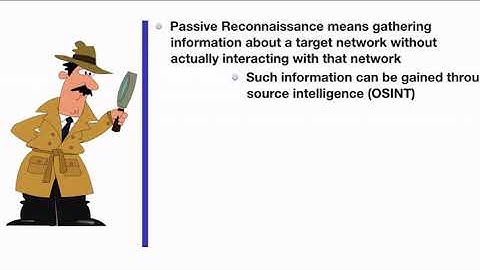|
Categories: Management
Question: The following is not a on the job training method
Answer D. Case study method
Question:Directors may not be disqualified for Option A.continuing to trade when the company is insolventOption…
Question:Which of the following is not one the underlying principles of the corporate governance Combined…
Question:The view that business exists at society's pleasure and businesses should meet public expectations of…
Question:An organisation's obligation to act to protect and improve society's welfare as well asits own…
Question:The hand-of-government refers to the Option A.ability of the government to interfere in business negotiationsOption…
Question:Successful global initiatives addressing standards for business must begin and end with: Option A.the role…
In order to continue enjoying our site, we ask that you confirm your identity as a human. Thank you very much for your cooperation. Given are the MCQ on Training and Development with Answers. This multiple choice questions are based on the topic training and development which is a part of Human resource management. This objective questions are useful for online exam questions for MBA, BBA, BCom and MCom students. 1. ________________ is the formal and systematic modification of behaviour through learning a. Training b. Education c. Instruction d. None of the above (Ans: a) 2. Training occurs as a result of _____________________________ a. Instruction b. education c. development d. all of the above (Ans: d) 3. Training refers to the process of imparting _______________ skills a. Specific b. General c. Important d. Over all (Ans: a) 4. _______ is any learning activity, which is directed towards future needs rather than present needs a. Training b. Education c. Instruction d. Development (Ans: d) 5. ______________________ is concerned more with career growth than immediate performance a. Training b. Education c. Instruction d. Development (Ans: d) 6. Development provides __ ____ and _____, which will be helpful to employees in higher positions a. general knowledge, Behaviour b. general knowledge specific skills c. general knowledge, attitudes d. Specific skills, attitudes You may also Like: Cyber Laws MCQ's on IT Act 2000 (Ans: c) 7. Development concerned more with __________________ a. Immediate performance b. succession planning c. career growth d. All of the above (Ans: c) 8. The purpose of ____________ is to teach theoretical concepts and develop a sense of reasoning and judgment a. Development b. Training c. Education d. Teaching (Ans: c) 9. __________________________ is a theoretical learning in classrooms a. Development b. Training c. Education d. Teaching (Ans: c) 10. Which of the below does not describe the nature of Training a. Application oriented b. Broad perspective c. Specific task d. None of the above (Ans: b) 11. _________________ is application oriented a. Training b. Education c. Learning d. None of the above (Ans: a) 12. Training is a. Narrow perspective b. Broad perspective c. long term d. None of the above (Ans: a) 13. ______________ is tangible in nature a. Development b. Training c. Both a & b d. Neither a nor b (Ans: b) 14. ________ is normally directed at operative employees and relates to technical aspects. You may also Like: Question Bank on Basics of HRM a. Training b. Education c. Learning d. Development (Ans: a) 15. In general training is related to a. Conceptual b. developmental c. technical aspects d. Human skills (Ans: c) 16. Development is not related to a. Conceptual b. developmental c. technical aspects d. Human skills (Ans: c) 17. Which of the following is not a method of Individual training need identification? a. Attitude survey b. work sample c. exit interview d. interview (Ans: c) 18. Which of the following is a method of group training need identification? a. Attitude survey b. work sample c. exit interview d. interview (Ans: c) 19. Which of the following is not a method of group training need identification? a. Quality Circle b. work sample c. exit interview d. MBO (Ans: b) 20. Which of the following is not a method of on the job training a. Supervision b. Job instruction c. Role play d. Job rotation (Ans: c) 21. Which of the following is method of on the job training You may also Like: MCQ in Compensation Management with Answers a. Group discussion b. Job instruction c. Role play d. Case Study (Ans: b) 22. Which of the following is method of off the job training a. Supervision b. Job instruction c. Role play d. Job rotation (Ans: c) 23. Which of the following is not method of off the job training a. Group discussion b. Job instruction c. Role play d. Case Study (Ans: b) 24. Evaluation helps determine the extent to which _____________ have been achieved a. efficiency b. profit c. training objectives d. employee satisfaction (Ans: c) 25. Evaluation gives insights for a. reviewing b. adjusting c. revising goals d. All of the above (Ans: d) 26. Evaluation of training model was developed by a. Donald Kickmatrix b. Donald Kirkpatrick c. David Kirkpatrick d. David Kickmatrix (Ans: b) 27. The evaluation training model was developed in the year a. 1985 b. 1970 c. 1975 d. 1980 (Ans: c) |

Pos Terkait
Periklanan
BERITA TERKINI
Toplist Popular
#2
Top 5 wilo fluidcontrol schaltet nicht ab 2022
1 years ago#3
#4
Top 8 warum kein blutspenden nach piercing 2022
1 years ago#5
#6
Top 8 o que é pirangagem 2022
1 years ago#7
#8
Top 8 o que é gluten free 2022
1 years ago#9
#10
Top 8 mondeo mk3 türgriff öffnet nicht 2022
1 years agoPeriklanan
Terpopuler
Periklanan
Tentang Kami
Dukungan

Copyright © 2024 ketiadaan Inc.


















